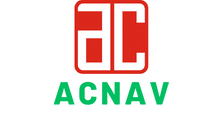Resources and advice for success in a career in consultancy

Embarking on a consulting career? Discover key resources and strategies to excel. From honing advanced computer skills to crafting standout CVs and navigating interviews, we'll guide you through essential qualifications. Learn about fast-track promotions, the pivotal role of mentorship, and strategies for long-term career growth. Plus, dive into networking tips and real-life success stories from seasoned consultants. Ready to thrive in consulting? Let's get started.
Essential skills and qualifications for a consulting career
Advanced computer skills are indispensable in consulting. Proficiency in tools like Excel, SQL, and data visualization software enables consultants to analyze complex datasets and present findings effectively. Specialized education, such as a degree in business, engineering, or economics, often forms the foundation of a consultant's expertise.
Also to read : How Can UK Businesses Use Augmented Reality for Product Prototyping?
Crafting a standout CV and cover letter tailored for consulting positions is crucial. Highlighting relevant skills, certifications, and experiences in a concise, impactful manner can make a significant difference. Use the EPIC (Evidence-based, Precise, Impactful, Concise) method to convert achievements into compelling bullet points. A personalized cover letter should clearly articulate why you are a strong fit for the firm and how your background aligns with their needs.
Navigating the consulting job interview process involves rigorous preparation. Familiarize yourself with common case interview formats and practice solving complex problems under time constraints. Demonstrating strong analytical skills, business acumen, and the ability to think on your feet can set you apart from other candidates.
In parallel : Harnessing carbon accounting software for sustainable solutions
Career advancement and development in consulting
Consulting firms offer a pyramidal hierarchical structure where fast-track promotions are common. Consultants can rise through the ranks, from junior roles to senior positions, often within two years based on performance rather than tenure. This rapid career progression is a significant draw for many young professionals entering the field.
Mentorship and coaching play a crucial role in career development within consulting. Experienced mentors provide guidance, helping new consultants navigate complex projects and develop essential skills. Regular feedback and coaching sessions ensure continuous improvement and career growth.
For long-term career growth and progression, consultants should focus on building a robust skill set and expanding their professional network. Engaging in continuous learning, obtaining relevant certifications, and seeking diverse project experiences can pave the way for achieving higher roles, such as Partner. Additionally, many firms now offer flexible working conditions to retain top talent, especially female consultants during critical life stages.
Networking and resources for aspiring consultants
Building a strong network is vital in the consulting industry. Connecting with professionals through events, LinkedIn, and industry forums can open doors to opportunities and provide valuable insights. Engaging with alumni networks and joining consulting clubs can also enhance your professional connections.
Utilizing comprehensive resources is essential for entering the consulting field. Platforms like "Career in Consulting" offer practical advice on structuring case studies, improving interview skills, and understanding firm-specific criteria. These resources are invaluable for those preparing for rigorous recruitment processes.
Success stories from experienced consultants highlight the importance of perseverance and strategic networking. Testimonials often emphasize how mentorship and targeted advice helped them secure prestigious positions. Visit this link for more information for additional insights and resources.
By leveraging these strategies and resources, aspiring consultants can navigate the competitive landscape more effectively, enhancing their chances of success in the consulting career path.
